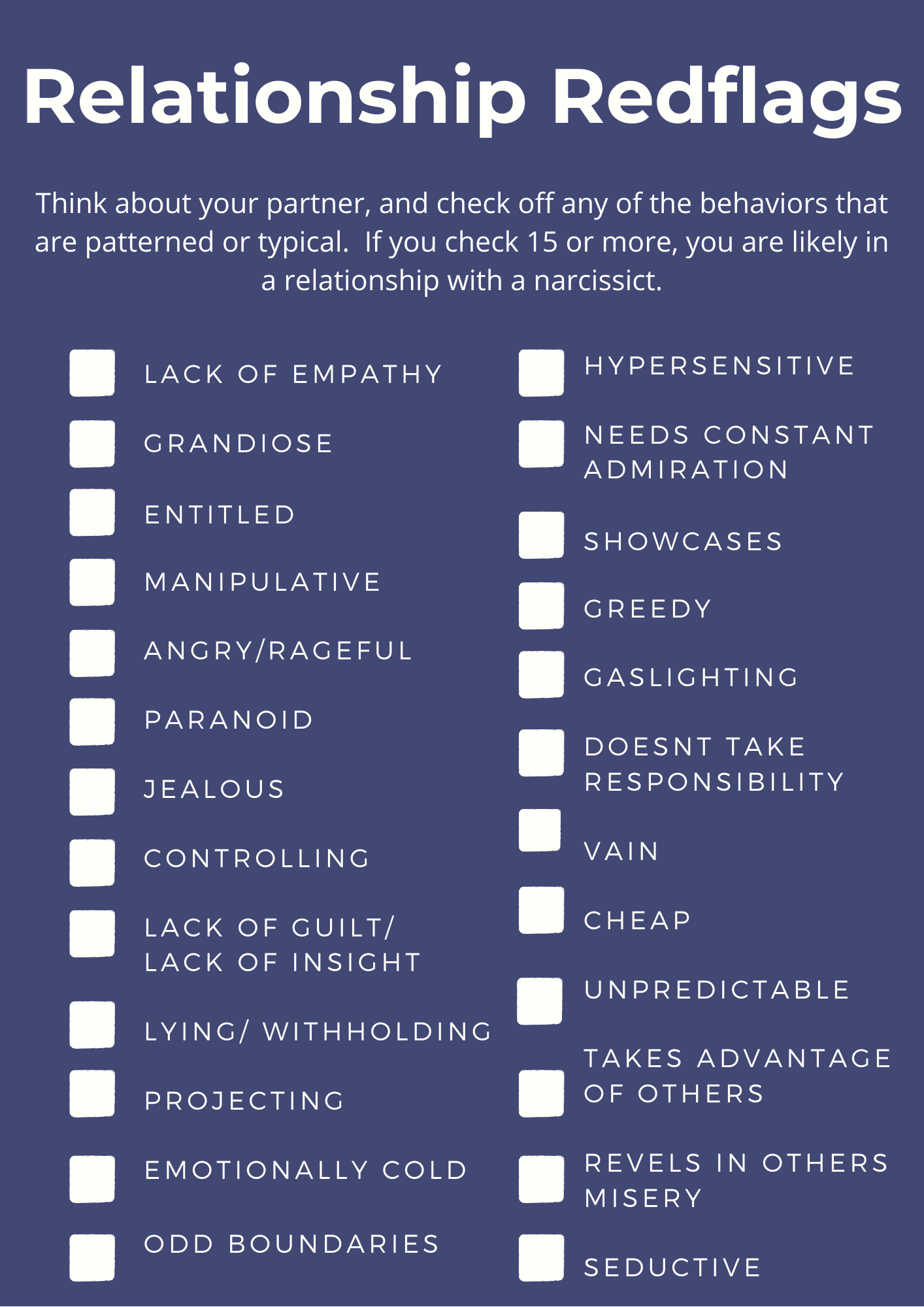Relationship Red Flags: Am I Dating a Narcissist?
Disagreements take place in all relationships. But how do you tell the difference between healthy arguing versus toxic narcissistic patterns?
We ALL demonstrate narcissistic behaviors at times (ie: being self-focused). It’s very human. However, when a partner’s tendencies consistently result in arguments, fights, guilting/shaming, and exhaustive drama followed by a cycle of rescuing and amending, this is no longer classified as healthy or normal.
All healthy relationships require ongoing work. Just like a garden needs tending, if you allow too much time to pass without maintenance, weeds take over.
The trouble with narcissists in relationships is their lack of willingness (or ability) to accept their emotional responsibilities to their partner, or do so begrudgingly.
See the “Relationship Redflags” checklist here and notice how many of these behaviors are typical patterns in your partner. If you are able to mark 15 or more, he/she is likely a narcissist (this is not meant to diagnose your significant other, but to help you identify the possible challenges you may be facing).
Common narcissistic personality traits explain why some relationships are emotionally exhausting to be in. Yet, many people choose to remain in their turbulence.
Why? Because acknowledgement, belongingness and acceptance are so important to us that we unknowingly contort ourselves to keep afloat a toxic relationship.
Because we WANT a relationship.
Because we WANT love.
And because ending a relationship can feel scarier and more difficult than staying in the pain.
Couples counseling is highly recommended for a relationship that’s become too tiring or turbulent. However, in most cases with narcissists, personality traits will never change. Due to this fact, I highly recommend individual counseling or personal coaching for the receiving partner. It’s likely that if you are the one noticing the dysfunction and suffering the most from it, you are the one who is in need of support and validation (whether you choose to remain in your relationship or not).
Relationships thrive when both partners share common core values and hold love and support at the heart of their commitment. The more two people demonstrate service to the other, the happier and healthier the relationship can become.
The key to harmony in a relationship is for BOTH partners to be actively engaged:
Regularly take your partner’s point of view.
Communicate openly, with care.
Serve your partner without expectations.
Every partnership will have opposing opinions at times, but if you are each clearly demonstrating the above key behaviors, you will be able to manage disagreements and thrive.
And if not, don’t give up hope. But DO get yourself help.
I am a Licensed Mental Health Counselor and certified Life & Health Coach. I work with smart individuals who currently are feeling stuck in their habits, health, careers or relationships. I help them find clarity and realignment- transforming from stressed and stuck to engaged and thriving!
If you are having trouble in your own relationship, feel free to connect with me on a free clarity call. My goal is to help you find clarity and awareness in your current situation, and figure out your next best steps to move forward so you can feel healthy, positive and fulfilled in your relationship and life.



